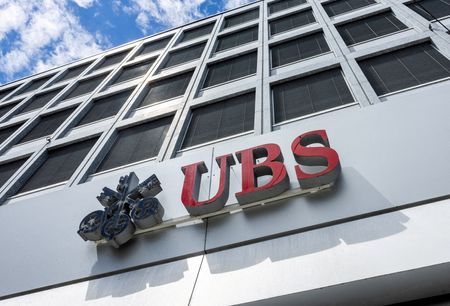By David Ljunggren, Ismail Shakil and Rod Nickel
(Reuters) – Canadian Prime Minister Mark Carney’s Liberals staged a major political comeback to retain power in parliamentary elections, fuelled by a backlash against U.S. President Donald Trump’s tariffs and comments on making Canada the 51st U.S. state.
With almost all votes counted in Monday’s election, the Canadian Broadcasting Corporation forecast the Liberals would form a strong minority government, falling just short of the 172 electoral districts they needed for a majority.
Provisional results from Elections Canada showed the Liberals had won 169 districts, followed by the Conservatives with 144. Judicial recounts will be needed in two districts and a final official result may be days away.
Although he failed to get a majority, Carney faces no immediate political danger, since all opposition legislators would have to vote against him to topple the government and two of his main rivals are in political trouble.
Conservative leader Pierre Poilievre, who just three months ago had looked certain to sweep the polls, lost his seat in Ontario. Jagmeet Singh announced he would step down as leader of the left-leaning New Democrats after he lost his seat in British Columbia and saw most of his party’s legislators defeated.
Carney had sought a majority to help him negotiate with Trump on the tariffs threatening Canada’s economy.
Trump congratulated Carney on his election victory in a call on Tuesday, Carney’s office said in a statement.
“The leaders agreed on the importance of Canada and the United States working together – as independent, sovereign nations – for their mutual betterment. To that end, the leaders agreed to meet in person in the near future,” it said.
The Globe and Mail newspaper, citing a senior Liberal official, said Carney would name a cabinet and reconvene Canada’s House of Commons within two weeks. Another priority will be the annual budget, which is usually presented in March or April.
Carney, saying Trump wanted to break Canada, had repeatedly vowed to open talks on new security and economic ties with the U.S. president as soon as possible after the Canadian election.
The Liberals, who have been in power since November 2015, were 20 percentage points behind in surveys in January before the unpopular Justin Trudeau announced he was quitting as prime minister and Trump started threatening tariffs and annexation.
“It was the ‘anybody-but-Conservative’ factor, it was the Trump tariff factor, and then it was the Trudeau departure … which enabled a lot of left-of-center voters and traditional Liberal voters to come back to the party,” said Shachi Kurl, president of the Angus Reid Institute polling firm.
In his victory speech early on Tuesday, Carney said Canada’s old relationship with the U.S. was over.
“The system of open global trade anchored by the United States … (which) has helped deliver prosperity for our country for decades, is over. These are tragedies, but it’s also our new reality,” he said.
TOUGH APPROACH
Carney said the coming months would be challenging and require sacrifices.
He also has to deal with Danielle Smith, the conservative premier of the western oil-producing province of Alberta, who complains the Liberals have undermined national unity with climate policies she says are designed to hurt the energy industry.
“A large majority of Albertans are deeply frustrated that the same government that overtly attacked our provincial economy almost unabated for the past 10 years has been returned to government,” she said in a statement.
Poilievre conceded defeat to the Liberals and said his party would continue to hold the government to account.
European Commission President Ursula von der Leyen and British Prime Minister Keir Starmer sent congratulations to Carney and his party.
Carney had promised a tough approach to Washington’s import tariffs and said Canada would need to spend billions to reduce its reliance on the U.S. But the right-of-center Conservatives showed unexpected strength.
Kim Zapf, a 74-year-old voter from Alberta, expressed confidence that Carney would be able to deal with Trump.
“I think Carney is mature enough that he can sit down with Trump and not make it a confrontation … Trump is all into deals, and I think Carney’s a good person to negotiate deals,” he said during a trip to Toronto.
Minority governments in Canada rarely last longer than 2-1/2 years. Trump’s threats spurred a wave of patriotism that boosted support for Carney, a political newcomer who had previously led the Canadian and British central banks.
Trump re-emerged as a campaign factor last week, declaring that he might raise a 25% tariff on Canadian-made cars because the U.S. did not want them. He said earlier he might use “economic force” to make Canada the 51st state.
Carney argued that his experience handling economic issues makes him the best leader to deal with Trump, while Poilievre tapped into concerns about the cost of living, crime and a housing crisis.
Trump, in a social media post on Monday, reiterated his call for Canada to become the 51st state.
(Reporting by Rod Nickel and Promit Mukherjee in Ottawa, Nivedita Balu in Toronto and Amanda Stephenson in Calgary; additional reporting by Susan Heavey in Washington and Wa Lone in Toronto; writing by Sharon Singleton and David Ljunggren; Editing by Kevin Liffey and Paul Simao)












